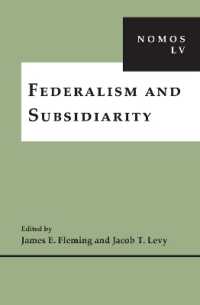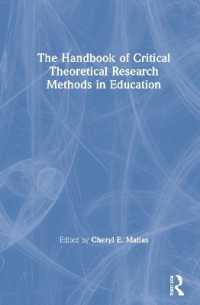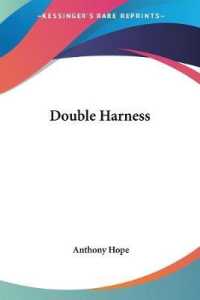Description
Does Aging Stop? reveals the most paradoxical finding of recent aging research: the cessation of demographic aging. The authors show that aging stops at the level of the individual organism, and explain why evolution allows this. The implications of this counter-intuitive conclusion are profound, and aging research now needs to accept three uncomfortable truths. First, aging is not a cumulative physiological process. Second, the fundamental theory that is required to explain, manipulate, and probe the phenomena of aging comes from evolutionary biology. Third, strong-inference experimental strategies for aging must be founded in evolutionary research, not cell or molecular biology. The result of fifteen years of research bringing together new applications of evolutionary theory, new models for demography, and massive experimentation, Does Aging Stop? advances an entirely new foundation for the scientific study of aging.
Table of Contents
PrefaceAcknowledgments1. Introduction: A Third Phase of Life2. Discovery of Late Life3. Late Life is Predicted by Hamiltonian Evolutionary Theory 4. Late-Life Mortality and Fecundity Plateaus Evolve 5. Genetics of Late Life involve Antagonistic Pleiotropy6. Demography of Late Life with Lifelong Heterogeneity7. Evolution of Lifelong Heterogeneity8. Experimental Tests of Lifelong Heterogeneity9. Death Spirals 10. Physiology of Late Life11. Late Life in Human Populations12. Aging Stops: Late Life, Evolutionary Biology, and GerontologyAppendixReferencesIndex








